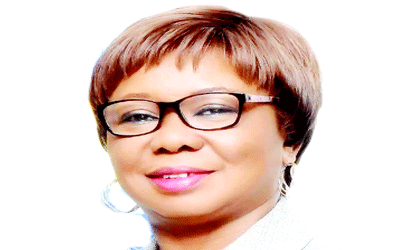Business
SEC Sets 7-Year Timeline To Revive, Develop Commodities Market

THE Securities and Exchange Commission, SEC, and other stakeholders in the commodities ecosystem have set a seven year timeline to revive the commodities market in Nigeria through the Nigerian Commodity Exchange, NCX, and set it at par with other commodity exchanges in other parts of the world. The restructuring will be concluded in 2025. SAN The Commission is said to be focusing on the importance of commodity exchange to the economic diversification agenda of the federal government and the need to grow the agriculture value chain. Part of the restructuring plan includes injection of fund by the Nigeria Sovereign Investment Authority (NSIA) into the NCX which has been comatose for some years. This comes as the only functional commodity exchange in Nigeria -AFEX Commodities Exchange – a privately owned commodities exchange, moved 46,160 metric tonnes (MT) of commodities (ginger, paddy rice, soya beans and maize among others) worth N6.3 billion between second quarter 2016 and fourth quarter, 2017, according to available data. To also facilitate the plan, the Commission has set up a special division – Commodities Division – as part of measures to strengthen regulatory capacity for the market. The NCX has been battling with a host of challenges, including lack of funding occasioned by government’s inaction, lack of enabling laws and proper understanding of the operations of commodities exchange. investment in Nigeria.
Phases of the restructuring Recommendations by the Technical Committee, TC, on Enhancing the Commodities Trading Eco-system, set up by SEC to recommend solutions to the many problems of the NCX showed that the planned restructuring would be in four phases with the first phase lasting for two years from 2018 to 2019. The first phase, according to the report of the committee, will focus on achieving food/input sufficiency, price discovery and market development with special attention on agriculture produce like maize, sorghum, soya beans, cassava and rice. This phase will also involve engagement in public enlightenment and development of education roadmap by the SEC as well as encouragement of investment in warehouses and storage facilities by both the Commission and private sector operators. This phase will also involve organisation of farmers into cooperatives by the Central Bank of Nigeria, CBN, Federal Ministry of Agriculture and Rural Development, FMARD, and SEC to aggregate produce and encourage them to become members of the exchange among other relevant actions. The second phase, which will last for another two years from 2020 to 2021, will focus on the development of export-focused commodities in agriculture like cocoa, sesame, cotton and palm oil, and continuous de-risking of agriculture value chain by the National Insurance Commission, NAICOM. In the third phase (2022-2023), exchanges would be expected to key into Customs Single Window System to ease process of export. During the fourth phase of the project (2024-2025), SEC and other stakeholders will ensure that there is strong international presence in the commodities market, while tradeable commodities will be expanded to include solid minerals and energy. Challenges However, the NCX has been faced with beehive of challenges, which the committee identified to include lack of proper funding to carry out its functions, which has hampered the ability of the NCX to enter into technical collaboration for capacity building and knowledge transfer that is badly needed with established commodity exchanges. In addition to these challenges, the exchange is faced with weak supply, lack of interest by operators in the securities market to open commodities trading subsidiaries, low understanding of the workings of the exchange and the absence of supportive infrastructure and institutional arrangements that could strengthen the supply side of the market. There is also the non – existence of vibrant farmers’ co-operatives that could bulk the produce of their members for wholesale marketing on the floor of the Exchange. Equally lacking were commodity grades and standards as well as farmers’ credit system based on Warehouse Receipts. Recommendations/Solutions One of the key recommendations of the committee is that commodity brokers/dealers should be encouraged to trade and not penalized by excessively high capital requirements. According to the report, in many other commodity markets, spot market brokers trading only physical contracts do not carry any mandatory capital base. The Committee stated that clear and straightforward regulation is required for the effective operation of a commodity exchange and advised that regulation of the spot markets should be devolved from the SEC to the Commodity Exchanges among other recommendations. Mary Uduk, SEC’s Action According to the Acting Director of SEC, Ms. Mary Uduk, in furtherance of the commitment to develop a vibrant commodities eco-system, the Commission has commenced the implementation of measures to strengthen regulatory capacity by establishing a Commodities Division. She said: “One of the cardinal objectives of the current government is diversification. Like you all know, Nigeria is a mono-product economy, which is oil. The capital market is actually, the next center of any economy and we at the SEC are trying to key in to that diversification objective of the government. Nigeria is majorly also an agrarian economy where every street in this country has a product that is exportable. “Hence, the best way for farmers to have value for their products is for there to be price transparency and a level playing field for every participant in the commodities space. For that to happen there will be a virile commodities exchange.” Continuing, she said: “The SEC sees it as major priority to help the farmers, the people and the economy, hence the need to re-establish the Commodity Exchange Division, empower it, provide the resources, training and the necessary where-withal to make sure that we regulate the market. Of course, we have the responsibility to support the creation of exchanges according to perception 13 of the Investment and Securities Act, ISA. That is why we are doing what we are doing in order that the Nigeria becomes better in the process of diversifying the economy.”


















